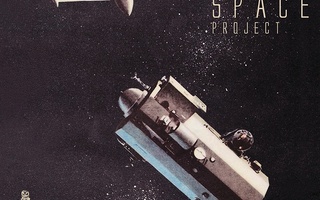
“Semele” is a rarely performed 18th century opera opening tonight in the New College Theatre. Its cast and crew hope to give it a modern relevance
Based on an ancient Greek myth, John Eccles’ early 18th century opera “Semele” is undergoing an update for its latest incarnation in the New College Theatre, albeit one that still keeps it vintage. Director Victoria J. Crutchfield ’10 has transplanted the rarely-performed English opera, which will run through Sunday, to the 1970s with the hope that the inaccessibility of the classical original will melt away with the modernizing adjustments such as the transformation of the original priests into hippies. With this new setting mixing the lighthearted and the dark, the new production aims for a sense of relevance and freshness.
The original story of Semele, which William Congreve adapted for his libretto, is a oft-told tale. The titular mortal protagonist falls in love with Jupiter, king of the gods. They have an affair, but when Jupiter’s jealous wife Juno finds out, she swears revenge. Furious, Juno disguises herself as a mortal and appears to Semele, convincing the poor girl to question Jupiter’s immortality. Semele, unaware that the sight of Jupiter in all his divine glory is fatal, demands to see him as a god. He begs her not to, but she stands firm, and once he reveals himself, she is burned in the heat of his thunderbolts.
The myth is typically Greek, but it’s moral is hardly ancient. “The way Semele expresses her dissatisfaction with the relationship and the way Jupiter responds to that could happen in any age,” says music director Julia S. Carey ’08.
James C. Liu ’89, who plays Jupiter, agrees. “Parts of the libretto explore the relationship between men and women in a way that is surprisingly modern,” he says. Semele’s ambition and her desire to contend with Jupiter as an equal can be likened to the women’s movement of the 1970s, he suggests. And though this is not the focus of the performance, it is certainly an underlying theme that helps lend the opera some contemporary relevance.
In terms of set design and staging, Crutchfield achieves the feeling of the 1970s through what she terms “fantastically ugly furniture” and “fabulous patterns.” This, however, is only true of the mortal realm; the gods reside in the baroque period. This contrast sets up what Crutchfield calls a “war of patterns”—a battle between the wallpapers and fabrics of the two eras that becomes a major aesthetic element of the performance.
This lightheartedness mixes tantalizingly with the darkness of the original myth.
“Victoria has staged it brilliantly, in that there are some darker themes that she brings out without losing the light feeling as a whole,” says Lily T. Kass ’10, who plays Ino. And though Eccles’ baroque music remains unchanged (it’s even played using period instruments), for Kass, this does not equal an aesthetic clash. “The music is what gives it its delight,” Kass says. “The music is what gives it its emotion.”
The sentiment is echoed by the play’s Cupid, Robin W. Reinert ’10. “The rhetoric of the music,” she says, “brings out the rhetoric of the words.” The complementary arias that Semele and Jupiter share, for example, focus the story on their relationship and demonstrate the varied layers of emotion of their characters. This lack of simplistic dichotomies—both in terms of their relationship and in terms of the light and dark mixture as well—is another theme of the production.
“Semele” is an intriguing challenge, simultaneously ancient and contemporary; but the cast and crew hope the interplay between the baroque and the psychedelic, between the light and the dark, will help “Semele” bridge the ages and stand as a uniquely modern opera.
Read more in Arts
Accio! Museum of Science Summons HPRecommended Articles
-
 ‘Semele’ Succeeds in Making Opera Feel Modern
‘Semele’ Succeeds in Making Opera Feel Modern -
Crutchfield Muses on MasteryOn Friday, conductor William Crutchfield taught a master class for Harvard singers.
-
Venice Baroque Orchestra To Revive Classical Hits at SandersFriday in Sanders Theatre, the Venice Baroque Orchestra will attempt to recreate one of the exemplary epochs in classical music.
-
 "Space Project" Showcases Stellar Songwriting
"Space Project" Showcases Stellar Songwriting -
'Jupiter Ascending' a FlopThough the Wachowskis may yet release a movie that rivals their previous filmography in complexity and mesmerism, “Jupiter Ascending” is an unoriginal attempt to release a more palatable film, which, to Wachowski fans, may be the hardest part to stomach.













